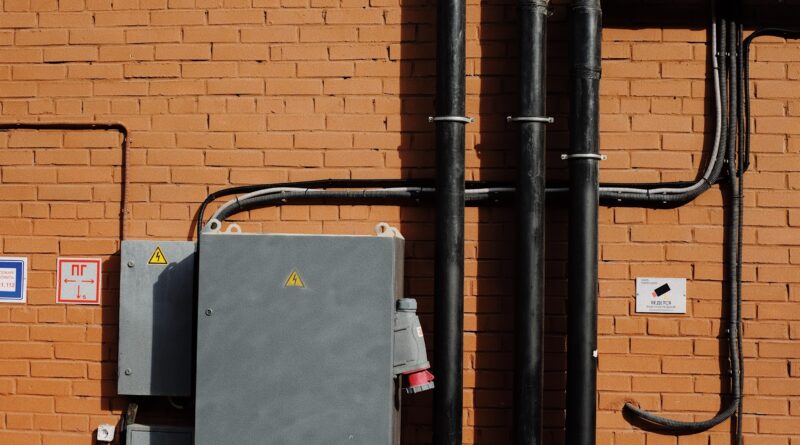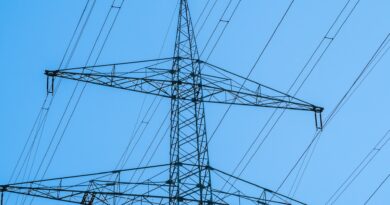Beyond Compliance: Maximizing Safety with Electrical Inspections
Introduction
Electrical inspections play a crucial role in ensuring that both residential and commercial properties are safeguarded against potential hazards. In this comprehensive guide, we will delve into the world of electrical inspections, exploring their significance, the inspection process, and the benefits they offer in maximizing safety. Trust us to provide you with the knowledge and expertise you need to maintain a secure electrical environment.
Understanding Electrical Inspections
What Are Electrical Inspections?
Electrical inspections are thorough assessments conducted by qualified professionals to evaluate the condition and compliance of electrical systems within a property. These inspections encompass a wide range of components, including wiring, circuit breakers, outlets, switches, grounding, and more. The primary objective is to identify any potential risks, deficiencies, or code violations that may compromise the safety and functionality of the electrical system.
The Importance of Electrical Inspections
Ensuring the safety of your property’s electrical system goes beyond mere compliance with regulations. While adherence to codes and standards is crucial, electrical inspections provide additional layers of protection by identifying hidden issues that may not be immediately apparent. By investing in regular electrical inspections, you can proactively address potential hazards, mitigate the risk of electrical fires, safeguard against electrocution, and prevent damage to valuable electrical equipment.
The Electrical Inspection Process
Preparing for an Electrical Inspection
Before scheduling an electrical inspection, it is essential to make necessary preparations to ensure a smooth and efficient process. Here are some key steps to follow:
- Documentation: Gather all relevant documentation, such as electrical permits, previous inspection reports, and maintenance records. These documents will provide inspectors with valuable insights into the history and maintenance of your electrical system.
- Accessibility: Ensure that all areas requiring inspection are easily accessible. Clear away any obstructions or clutter that may impede the inspector’s access to electrical panels, outlets, and other components.
- Safety Measures: Prioritize safety during the inspection. Ensure that all electrical equipment is turned off, and notify occupants about the inspection to prevent accidental power disruptions or hazards.
Conducting the Electrical Inspection
During the electrical inspection, a qualified professional will meticulously assess various components of your electrical system. Here’s an overview of the inspection process:
- Visual Inspection: The inspector will perform a visual examination of electrical panels, wiring, outlets, switches, and other visible components. They will look for signs of wear, damage, improper installations, or any visible safety concerns.
- Testing and Measurements: Inspectors will employ specialized tools and equipment to conduct tests and measurements. This may include voltage testing, ground-fault circuit interrupter (GFCI) testing, and verifying proper grounding.
- Code Compliance: Inspectors will evaluate the electrical system’s compliance with local and national electrical codes and standards. They will ensure that the system meets the necessary safety requirements and identify any violations that need to be addressed.
- Documentation and Reporting: Upon completion of the inspection, the inspector will provide a detailed report outlining their findings, including any deficiencies, safety concerns, or code violations. This report serves as a valuable reference for remedial actions and future maintenance.
The Benefits of Electrical Inspections
Regular electrical inspections offer numerous benefits in maximizing safety and minimizing potential risks. Let’s explore some of the key advantages:
- Early Detection of Hazards: Electrical inspections can identify hidden issues that may pose serious safety risks, such as faulty wiring, overloaded circuits, or outdated equipment. Detecting these hazards early allows for timely repairs or replacements, preventing potential accidents or damage.
- Compliance with Regulations: By conducting electrical inspections, you ensure compliance with relevant electrical codes and regulations. This not only helps you avoid legal penalties but also demonstrates your commitment to maintaining a safe environment for occupants or employees.
- Protection of Investments: Electrical systems are integral to the functioning of both residential and commercial properties. Regular inspections safeguard your investment by preventing costly damage to electrical equipment and minimizing the risk of electrical fires.
- Peace of Mind: Perhaps the most significant benefit of electrical inspections is the peace of mind they provide. Knowing that your electrical system has been thoroughly assessed by professionals and is free from potential hazards offers reassurance and confidence in the safety of your property.
Conclusion
Investing in regular electrical inspections goes beyond compliance with regulations; it is a proactive measure to ensure the safety and well-being of your property and its occupants. By addressing potential risks and code violations, electrical inspections help mitigate hazards, protect investments, and provide peace of mind. At [Your Company Name], we are committed to maximizing safety through comprehensive electrical inspections. Trust our expertise to keep your electrical systems secure and efficient.




